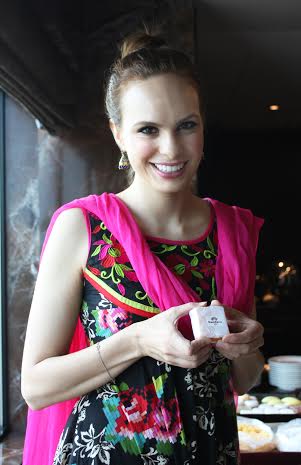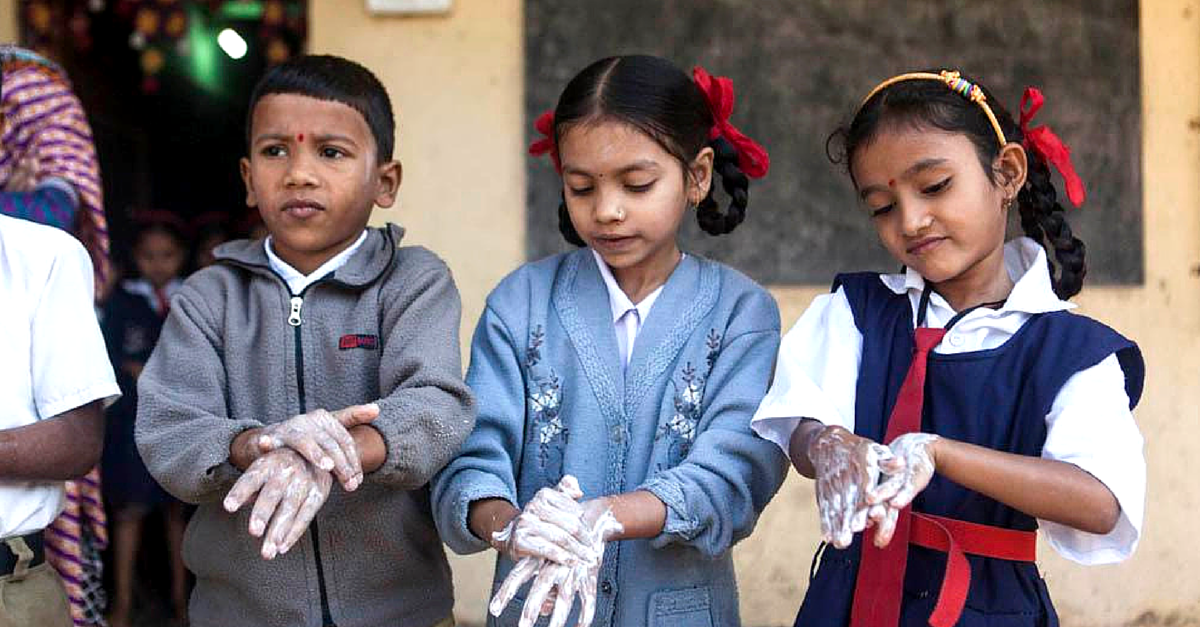A girl from the US packed her bags and came to India. When she met kids who were 13 years old and didn’t know what soap was, she had the ingenious idea of recycling soaps, distributing them in slums for better health and hygiene, and empowering women. Here’s more about Sundara soaps and it’s founder Erin Zaikis.
A few years ago, Erin Zaikis saw Slumdog Millionaire, a highly acclaimed movie that portrayed the lives of people in Mumbai slums. Her life hasn’t been the same since then, because she just packed her bags and came down to this country.
“I couldn’t believe that people were living like this. I booked my ticket and came to Mumbai and started working with an orphanage here. I had always lived a very superficial life where materialistic things mattered a lot. But when I came to India, my life was changed. I got a new sense of purpose,”
– Erin Zaikis

After working for a short period at the Mumbai orphanage, Erin went back to the US but her heart was still in India. On graduating from the University of Michigan, she went to rural Thailand. There she met children who had never used soap and didn’t even know how to wash their hands.
When she found out that about 70 million people in India too faced the same issue, she found a reason to return and work in the country that had changed her life.
Erin came back to India in 2014 and started Sundara, an organization that employs several underprivileged women from the slums of Mumbai to recycle soap collected from 15 hotels nearby.
But it wasn’t an easy task. Especially for Erin who has never worked independently on a project like this before.
“I constantly asked people for help and advice. I would ask them to connect me to a few hotels in Mumbai. It took so much time. And after I did connect with some hotels, convincing them to give us their discarded soaps was also a challenge. Earlier, I did not understand why anyone would be sceptical about giving us their waste. But later I learnt that they were scared of getting into any legal trouble in case someone fell sick,” she says.
After a lot of convincing, Erin got a few hotels to partner with her for her initiative. An existing NGO called Gabriel, that provides meals to slum kids, helped introduce Erin to the slum people so she could gain their trust easily.
Gabriel’s team helped her explain her idea to the community. She got in touch with the women of local self-help groups who agreed to help her with the manufacturing of recycled soaps.
Once Erin finally had all the right partners, she just needed to learn how to make new soap bars out of discarded ones and the process couldn’t be simpler. It takes just seven minutes to make one batch of soap bars.
Soap is first sorted and cleared of debris. A potato peeler is used to remove any part of the soap that might have been in contact with the body, followed by cleaning it with a chemical solution.
A manually operated, small scale soap recycling machine is used to make new soap bars out of the old ones. Finally, bars are packaged and distributed, along with providing hygiene education.
Sundara reaches out to over 6,000 children and adults in Mumbai slums. The soap is distributed to a network of over 30 schools and community centers and each regular soap delivery is accompanied by Sundara’s representatives who instruct people on hand washing and other healthy habits.
Sundara has not only inculcated better hygiene awareness among the slum residents but also given an alternate source of income to the women who live there.
The impact of Erin’s work is clearly visible. Still a new initiative, Sundara is gradually expanding to more slums in Mumbai.
“I thought I could never create an impact as I am not rich and don’t have resources. My whole life I thought I couldn’t give back because I was not rich. But working with Sundara made me realise that no matter what community I belong to, I can give back and be part of the change,”
– Madhuri, a 30-year-old woman who works with Erin.
The team has made over 8,400 bars of soap, impacted 6,000 lives, saved 1,000 kgs of waste soap, and given 371 classroom lessons on hygiene.
Not satisfied with what she has done so far, Erin is constantly looking to expand her work and is open to organisations that want to partner with her and take her initiative to the next level.
“We would be happy to collaborate with anyone who is willing to scale this up. This is just the start and we are positive that we can grow tremendously. We want to make sure that we saturate Mumbai’s needs before we move on to other states,” says Erin.
Thanks to Erin’s intervention, several thousand people who suffer from disease and ill-health now have an option to adopt a healthier lifestyle.
How About Starting Something Similar In Your Neighborhood?
You may check out Sundara’s website and Facebook page to get more ideas to get you started. And if you do start, don’t forget to tell us!
Like this story? Or have something to share? Write to us: contact@thebetterindia.com, or connect with us on Facebook and Twitter (@thebetterindia).
If you found our stories insightful, informative, or even just enjoyable, we invite you to consider making a voluntary payment to support the work we do at The Better India. Your contribution helps us continue producing quality content that educates, inspires, and drives positive change.
Choose one of the payment options below for your contribution-
By paying for the stories you value, you directly contribute to sustaining our efforts focused on making a difference in the world. Together, let's ensure that impactful stories continue to be told and shared, enriching lives and communities alike.
Thank you for your support. Here are some frequently asked questions you might find helpful to know why you are contributing?

